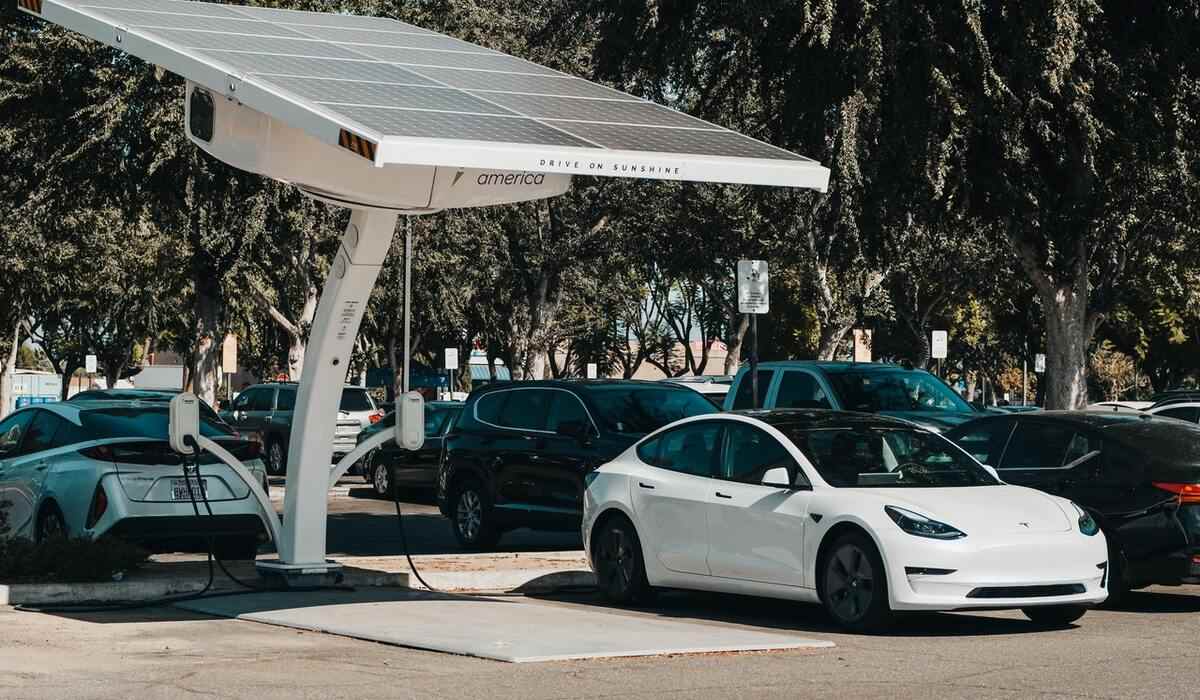Can Australia Transition to Renewable Energy to Boost the EV Industry?

Since the Industrial Revolution, fossil fuels have supplied the world with energy, powering automobiles and aircraft, driving manufacturing industries and businesses across the globe and cementing themselves as key energy sources within electricity grid infrastructure. However, it should come as no surprise that the abundant use of non-renewable fuels (oil, natural gas, coal) has become a cause of concern in the 21st century due to their negative impacts on the environment, especially in relation to Carbon Dioxide (CO2) emissions.
With a global shift towards cleaner energy, you may have noticed that renewable sources of power are becoming more prevalent, with their clean energy output, low cost and environmentally sustainable message becoming favourable with both investors and governments. In meeting the Paris Climate Agreement to “foster climate resilience and lower greenhouse gas emissions development” – [1], renewable power sources are becoming more integrated within the Australian electricity grids. This enables many benefits and further growth of the renewable sector, making the switch to EV’s easier for people like you and me.
Solar energy is the leading renewable energy source in Australia due to its increased efficiency and reduced cost of development and installation. Its widespread adoption and incentivisation by the Australian Government, with solar rebates of up to $3250, has seen over 21% of Australian homes (just over 2 million people!) install solar panels on their roofs.
Now, you might be asking yourself, “what does this have to do with Electric Vehicles?”
The answer is simple. Those adopting greener technology such as solar panels and home battery systems are also investing in Electric Vehicles to completely transition themselves to green energy and become reliant on the grid.
It makes sense, right? Because residential homeowners generate their own electricity from their rooftop solar panels to power in-home appliances, why not go a little further and charge your vehicle too!
Moreover, for EV owners, electric chargers are now capable of load managing residential power and providing solar matching functionalities to charge electric vehicles, reducing already minimal charge-up costs and further incentivising both the solar and EV industry. An increase in EV adoption has already been seen this year, with more than 6,000 EVs sold in the first half of 2021, doubling that of 2020. Surveys by the Electric Vehicle Council have found consistent results stating that the proportion of Australians who would consider buying an electric vehicle as their next car has stayed at about 50%, due to the savings in fuel and the global shift in focus to more renewable energy goals.
However, with this rapid increase in EV and EV charging, can Australia’s electricity grid cope with the increased power demands?
Supported by falling costs, increased research and emerging state and federal renewable policies, clean energy sources are expected to become the primary energy provider for the future. To become a leading provider of energy, the Australian electricity grid must invent new methods to accommodate for the high penetration of variable renewable energy in the electricity supply and demand domains. Grid stability is at the crux of the Renewable Energy-to-Grid issue, with the National Energy Market (NEM) currently relying on coal and gas-fired power stations to ensure grid stability in times of high demand. However, new research by the Australian Institute highlights the positive impact battery storage and synchronous condensers has on the stability of the electricity grid, going as far to state that “batteries and clean energy are poised to replace the system security that has historically been provided by coal” – [2].
Additionally, whilst current batteries systems seek to stabilise the inertia and system strength of the grid as a substitute to synchronous generators, inductive electrical devices such as Synthetic Inertia systems are combatting system weaknesses with better control and reduced requirement for inertia. Already in use in South Australia, the 30MW Dalrymple battery system uses a “Virtual Synchronous Generator” – [2] which replicates the “behaviour and performance of a traditional synchronous machine” – [2] to strengthen the grid; producing 200MW of synthetic inertial energy. Having a system that can provide better and more reliable performance in terms of electricity grid demand is vital to the adoption of EV’s. It provides a capacity for future growth within the EV sector.
References
- United Nations. 1 st Session. (2016, April. 22). Paris Agreement. [Online]. Available: https://unfccc.int/files/meetings/paris_nov_2015/application/pdf/paris_agreement_eng lish_.pdf
- A. Chang, “Batteries and Renewables to Provide Secure Energy Future: New Report.” The Australia Institute, Canberra, Australia. Date: March. 29, 2021. Accessed: April. 30, 2021. [Online]. Available: https://australiainstitute.org.au/post/batteries-andrenewables-to-provide-secure-energy-future-new-report


